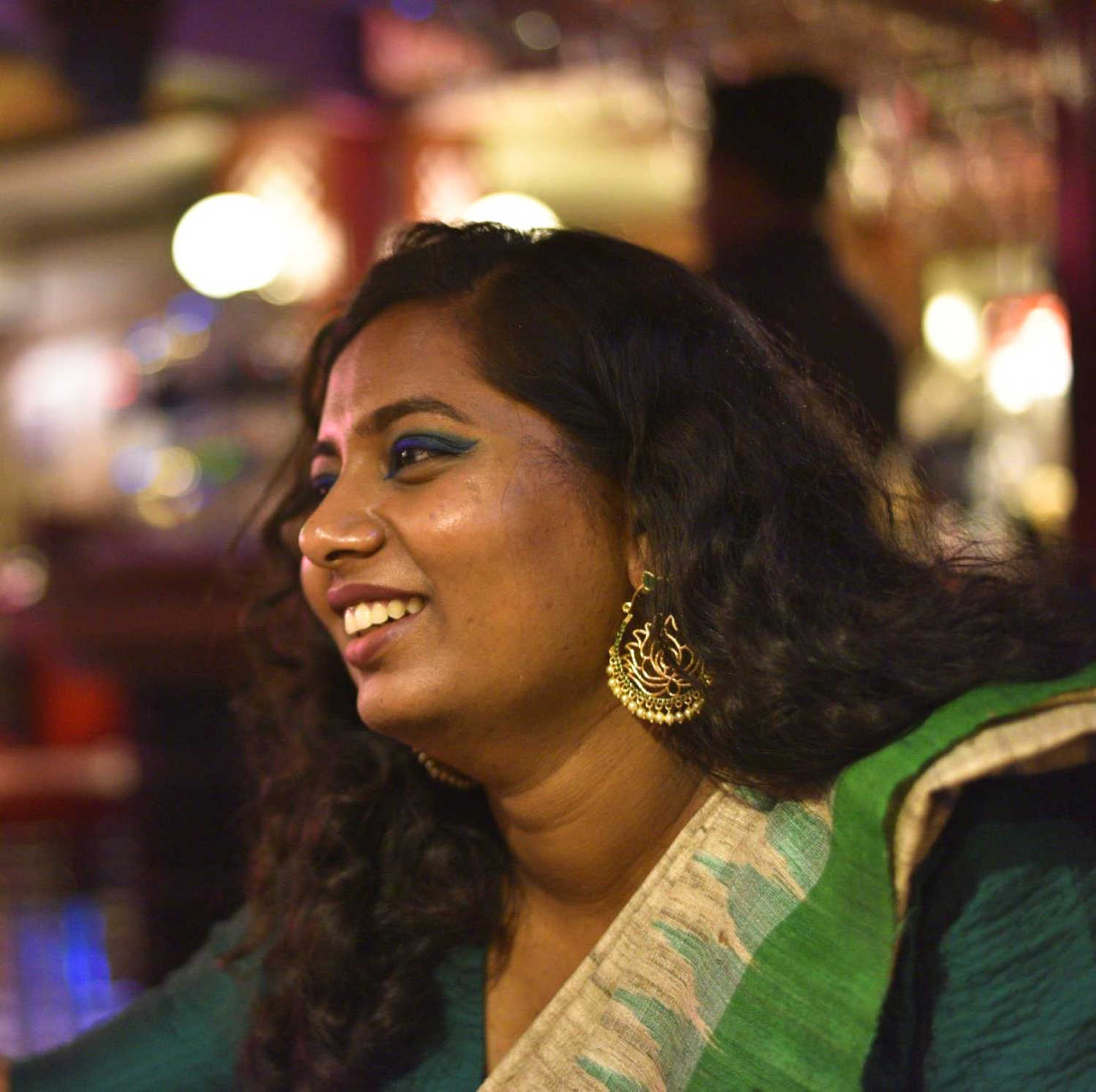Filmmaker Rhea Mathews talks about the interaction between gender and tradition that she wanted to explore in her graduating film, Stains.
Wanted to deal with the idea of cultural difference in the context of a relationship: Rhea Mathews
New Delhi - 24 Mar 2020 7:30 IST
Updated : 11:33 IST


Sukhpreet Kahlon
Rhea Mathews’s short film Stains revolves around a couple from different cultural backgrounds who are spending the weekend with the man’s mother on Onam. The woman gets her period and is made to withdraw from the festivities. The film explores the discomfort and prejudice around menstruation and the ways in which women navigate the space of culture and tradition.
Rhea Mathews is a graduate of Film and Video Communication from the National Institute of Design. Her films aim to be inclusive and relatable through under-represented stories surrounding us. Stains was screened as part of the IAWRT film festival in New Delhi. In a conversation with Cinestaan.com, the young filmmaker spoke of the dichotomy between individual lives in the city and the ties of family traditions that she wanted to explore through her film. Excerpts:
What drew you to this story and inspired you to make the film?
When I was in my graduation project semester, I was wondering about the kind of film that I would like to make and was reading a lot of short stories. Manjula’s story was in a completely different setting, but I just kept thinking about it. It made me think about my own cultural inadequacy as I have grown up in Ahmedabad and my parents are from Kerala, so I know that feeling of being from somewhere but not really belonging.
So I wanted to deal with the idea of cultural difference in the context of a relationship because in urban spaces, there is the conflict of individuality versus the collectivistic family values and I was looking at how men and women have to navigate that so differently because a lot of women grow up with small fights with their family to regain agency over their bodies in a sense — whether it is about staying up late, who you are with, what you wear — and you get used to fighting for those things because you value your individuality, but men do not really have to do that. They have to deal with it if you fall in love with somebody and there is a conflict. So they don’t think of it as a big deal if you are asked to adjust a little. The small sacrifices feel small to them but are a collection of fights that women have fought already within their families, and they have to do it with somebody else’s, which is not entirely fair, but is new for the man.
Your film navigates those spaces in different ways but also through the reaction towards menstruation which the protagonist does not quite anticipate.
I think in almost every culture in India there is a menstrual taboo. Another reason for keeping two separate cultures [in the film] was that I don’t think if both of them were from the same culture she would be so unprepared for that reaction. I don’t think it would have put her in the space of conflict and feeling secluded.
It’s also that she is used to her own space in an urban space and already walked out of that door much earlier and one is aware of that but it’s so remote from your own experiences that it’s a shock to the system.
You navigate that through the relationship and also through food, especially in that last scene, where she is eating her bacon and eggs, which is in response to the bland food that she was being made to eat.
It was the breakfast which everyone knows how to make versus so much culture represented through the Onam sadhya [Onam feast]. I also wanted to end the film with her eating and not him because the last shot of him showed that he is still in some degree bound to that structure of culture and tradition because his relationship has come to pass, which is a huge thing, but he is still sitting there for Onam. You think that that comes first before anything else.
The film is your graduating film from the NID and I have seen some very interesting work from students both in terms of form and aesthetics. Tell us about the institute and the work being encouraged.
It is a space that helps and guides you and you get the access to see all kinds of work and figure out your own way of looking at things and aesthetics and at no point do you think that one is superior to the other. In terms of peers, we are able to work with a diverse group of people and the people I worked with from NID were of different age groups, different batches and because of the environment there you are able to work with anyone you want and they are all part of your learning as much as your guides are. The space that the graduation project gives you, enables you to work with the tools in your hands because we don’t have large budgets or industry standard equipment, so the focus is really on the writing and the aesthetics. I think that is showing in the work of my peers as well.
The short film Stains was screened at the IAWRT Asian Women's Film Festival held in New Delhi from 4–7 March 2020.
Related topics
IAWRT Asian Women's Film Festival


